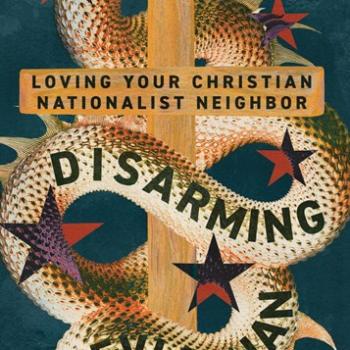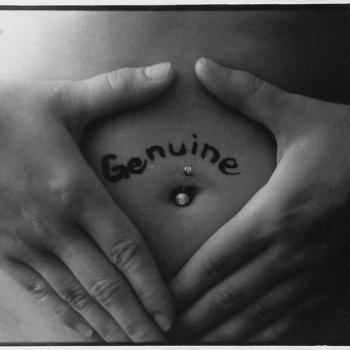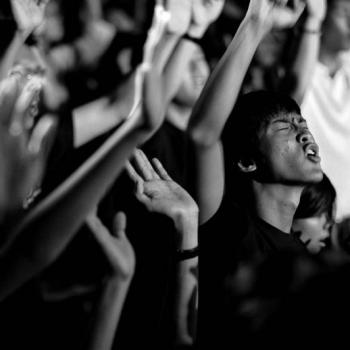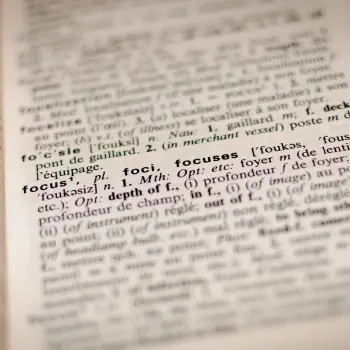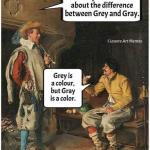Individualism is not individuality. The latter is a beautiful aspect of the human mosaic. The former is a perspective that, in practice, orients the world around individuals. Individualism (not individuality) is an ideology, a normative principle for guiding one’s life.
While a“Christian individualist” technically is an oxymoron, Western Christians routinely defer to individualistic thinking. And, as I was recently reminded, such a worldview is not only irrational; it also has devastating consequences.
Untamed Individualism
A recent episode from Adam Grant’s podcast will serve as a case study. The title caught my eye: “Glennon Doyle Wants you to Abandon Identity.” Glennon Doyle’s best-selling memoir Untamed was “Audible’s most listened to book of all of 2020” (according to Grant). That’s incredibly depressing. You’ll see why in a moment.
As background, you should know a bit about her. She seems to have undergone her own sort of “deconstruction.” (For a helpful book on the subject, see Swoboda’s After Doubt: How to Question Your Faith Without Losing It). Doyle distanced herself from Christianity and since divorced her husband to then marry soccer star, Abby Wambach.
Grant asks Doyle how her identity has changed over the course of her life. As incoherent as it is, this might be the best articulation of the individualist mindset I’ve ever read:
“I don’t identify as anything anymore because it feels to me like the second you have an identity, then you have to have a dogma or list of rules that, that allows you to keep that identity. And then when you have a dogma or a list of rules, you have to have a tribe. And then when you have a tribe, you have to have an enemy. And that just stopped working for me.
So, and then like, I thought I was a straight woman and then not turn out to even be wrong. So listen, I think I could say to you, Adam, I am Glennon. I’m pretty sure. I kind of feel like anything I put after an I am is a promise that I don’t want to be stuck with my whole life.”
Read that first part again. Really. 
First of all, saying “I don’t identify as anything anymore” does not at all mean one forsakes one’s identities in any way, shape, or form. I will always be the son of a particular mother and father. I will be the person who was raised in one place and not another. I will be the friend of those people and not those people. The list could go on.
Not acknowledging reality doesn’t make it go away. It’s merely self-deception.
Belonging and Identity
Since returning to America, I have ached with dismay at how violently and increasingly people resist any “label” or identity. How ironic that people simultaneously want to belong but not have any label of identification. Yet, the two are entwined.
Notice how Doyle responds to this connection between belonging, identity, and individualism.
“It’s like we’re born these individual wild souls, but we just so much want belonging. And so sometime along the way we trade a lot of our individuality for belonging. Like it’s like we can have one or the other. And that’s what happened to me with religion.”
[JWu’s interjection: To use the body analogy, must the hand or foot give up its individuality to belong to the body? No, it’s that belonging that accentuates their individuality!]
“I so badly wanted to be, to belong to this group that was called Christian and that, you know, took care of each other, but, but there was just all the stuff that went along with it that I kept not being able to ignore. That was a lot about exclusivity and a little bit, I think about hate. And, and so it just felt like there was going to be a decision to be made. That I was either going to continue to abandon myself for this kind of fake belonging, um, or I was going to choose myself and what I know to be true and abandon the belonging.”
One thing she misses is that belonging and identity need not be hateful. Inherently, our conglomeration of individual traits and experience differentiates us… what someone might call “exclusivity.” But that difference need not become hateful.
Why must the hand hate the foot because they belong on different hemispheres of the body and have varied experiences?
Individualism is a Fatal Malady
After telling of her departure from the church, Doyle says,
“But it was the first time that I kind of learned the process of not abandoning myself and, um, and leaving an identity, a tribe, a group, and surviving it, which, you know, kind of made the whole process of figuring out how to leave a broken family and a broken marriage to create a new one a little bit easier because I had survived all the fallout of, um, deconstruction before….”
Like asking a person to describe a round square, she speaks of “not abandoning herself” by “leaving an identity, a tribe, a group.” Yet, there is no self apart from our myriad relationships and communities.
When I shared this podcast with a wife, she said, “When I listened, I thought, ‘Man, I’d hate to be in her circle of friends. There would always be a fear she would just sever relationships or decide to do whatever made her happy regardless of her community.’” I completely again. It’s so sad.
Individualism takes many forms. In fact, as I wrote this, I stumbled on some comments recently made by a former anti-vaxxer. Asked why she resisted vaccines so vehemently, she explained,
“Subconsciously, I think my thinking was motivated by not wanting to be like the ‘sheeple’….
But I think my decision not to do certain things, including avoiding certain medicines, was also rooted in not wanting to be like everybody else. Subconsciously, I wanted to have this special knowledge.”
This sort of thinking can lead to tragic results. The lust to feel unique (as though we weren’t inherently unique) is potent. We will cast aside rationality, science, and relationships. But we should recognize that this is not an individual problem; we have all drank that cool-aid.
You might also be interested in these related articles









